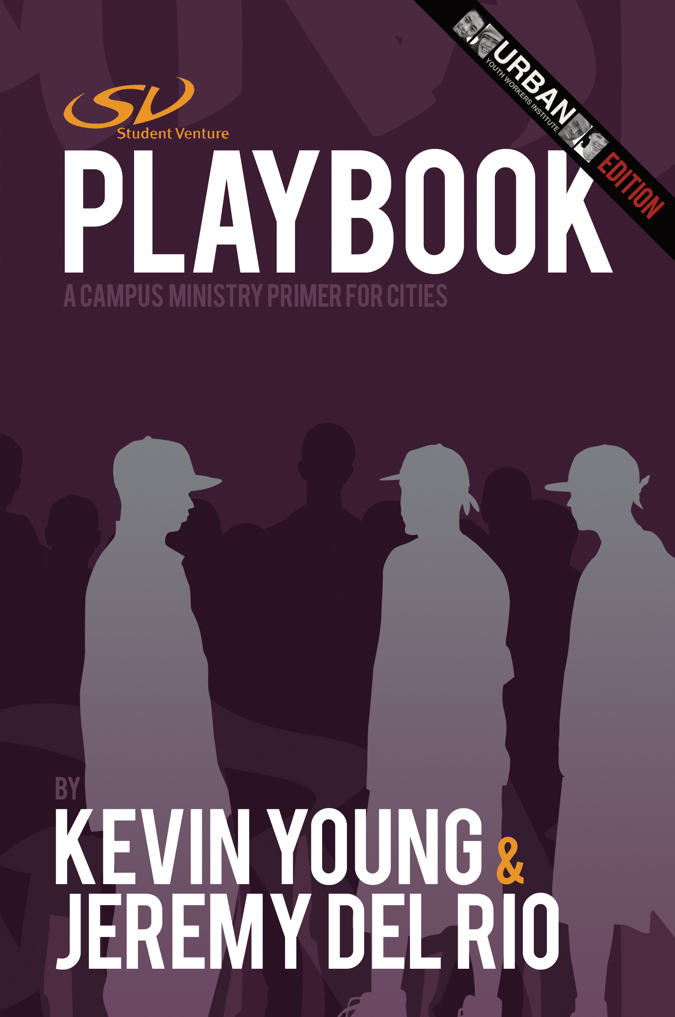« Outreach magazine has a thing for my friends | Home | NYS Commissioner: Why »
Thoughts on racial profiling; Saudi gang rape; and Bay Ridge, Brooklyn
By Jeremy | November 26, 2007
 I live in the fastest growing Arabic community in New York City. Like many Brooklyn neighborhoods, Bay Ridge has been home to successive waves of immigrants, including Scandinavian, Italian, Greek, Puerto Rican, Asian and many others. Since first moving here in 1990, I have watched Fifth Avenue transform from a typical commercial Brooklyn corridor dotted with pizzerias, bagel shops, convenience stores, and take-out Chinese into a veritable Middle Eastern mecca of sorts, complete with a three-story Islamic center, smoke shops, Egyptian importers, and even a halal Chinese restaurant. My Christian son Judah plays with Muslim boys with names like Muhammed and Ibrahim every time we visit any of the neighborhood parks.
Some cultural differences are obvious between "them" (the Arab immigrants) and "us" (other ethnic, indigenous New Yorkers), from how we dress to the fragrances of our food and the accents that flow from our tongues. Such distinctions come with the cosmopolitan territory of living in the self-styled "Capital of the World" and are generally easy for most New Yorkers to embrace.
Following 9/11, however, other more subtle differences became sources of mistrust. Rumors spread among people I otherwise know to be loving and compassionate about how some of the shops were supposedly funneling money back to the Middle East to fund jihad. Reports surfaced that one of the WTC hijackers may have at some point visited one of the neighborhood mosques. Police raids produced several (as far as I know, never charged) "detainees" and fostered suspicions. And things like aggressive playground behavior and perceived parental indifference to it have fueled stereotypes and prejudice. The instinctive response is to avoid "their" shops and interpret differences as evidence that "they" can't be trusted.
Still, some neighborhood leaders and clergy have championed the need to bridge the cultural divide by engaging in meaningful relationships with the newly arriving families, especially in a post-9/11 world where it's easy to want revenge and view others through a prism of pain and skepticism. As someone committed to things like justice and immigration reform and "incarnational" ministry and "contextualization" of the gospel among people at the margins of society, I personally have wrestled with what welcoming this particular community looks like. If there was ever a modern analogue to New Testament Samaritans, at least in my personal and ministry context, this wave of immigration post-9/11 seems to be it.
And then news like this happens and muddies the waters. In case you missed it, a Saudi woman and her ex-boyfriend were kidnapped and gang raped after meeting briefly for her to retrieve some personal belongings. The Saudi courts decided that the woman should be punished for being in mixed company without a chaperon and sentenced her to ninety lashes with a bamboo reed, while the gang of rapists received prison sentences in the months, not years. Her lawyer appealed, and for embarrassing the mullahs the appeals court worsened her punishment to 200 lashes and six months in prison.
Once again skeptics point to this incident as evidence that there's something inherently flawed with societies that sanction such injustices, and that those who embrace such traditions cannot be trusted. The outcry leaves me and others to ask: In the context of global jihad, Islamic fundamentalism such as the Saudi rape victim experienced, and evidence that would-be international terrorists are overwhelmingly disaffected Arab males, am I wrong to believe that profiling Arabs racially is always wrong? When Jesus pronounced blessing on those who welcome immigrants and curses on those who don't, does that apply to Christians like me in Bay Ridge? What does loving "aliens" and "strangers" (what the Bible calls immigrants) look like in this neighborhood context, with this particular group of immigrants? What relevance should global conflicts have, if any at all, to people like me trying to live faith authentically in my own neighborhood? And what might pursuing authentic relationships with Arab neighbors look like?
Please contribute your thoughts to mine, and help me make sense of it all.
I live in the fastest growing Arabic community in New York City. Like many Brooklyn neighborhoods, Bay Ridge has been home to successive waves of immigrants, including Scandinavian, Italian, Greek, Puerto Rican, Asian and many others. Since first moving here in 1990, I have watched Fifth Avenue transform from a typical commercial Brooklyn corridor dotted with pizzerias, bagel shops, convenience stores, and take-out Chinese into a veritable Middle Eastern mecca of sorts, complete with a three-story Islamic center, smoke shops, Egyptian importers, and even a halal Chinese restaurant. My Christian son Judah plays with Muslim boys with names like Muhammed and Ibrahim every time we visit any of the neighborhood parks.
Some cultural differences are obvious between "them" (the Arab immigrants) and "us" (other ethnic, indigenous New Yorkers), from how we dress to the fragrances of our food and the accents that flow from our tongues. Such distinctions come with the cosmopolitan territory of living in the self-styled "Capital of the World" and are generally easy for most New Yorkers to embrace.
Following 9/11, however, other more subtle differences became sources of mistrust. Rumors spread among people I otherwise know to be loving and compassionate about how some of the shops were supposedly funneling money back to the Middle East to fund jihad. Reports surfaced that one of the WTC hijackers may have at some point visited one of the neighborhood mosques. Police raids produced several (as far as I know, never charged) "detainees" and fostered suspicions. And things like aggressive playground behavior and perceived parental indifference to it have fueled stereotypes and prejudice. The instinctive response is to avoid "their" shops and interpret differences as evidence that "they" can't be trusted.
Still, some neighborhood leaders and clergy have championed the need to bridge the cultural divide by engaging in meaningful relationships with the newly arriving families, especially in a post-9/11 world where it's easy to want revenge and view others through a prism of pain and skepticism. As someone committed to things like justice and immigration reform and "incarnational" ministry and "contextualization" of the gospel among people at the margins of society, I personally have wrestled with what welcoming this particular community looks like. If there was ever a modern analogue to New Testament Samaritans, at least in my personal and ministry context, this wave of immigration post-9/11 seems to be it.
And then news like this happens and muddies the waters. In case you missed it, a Saudi woman and her ex-boyfriend were kidnapped and gang raped after meeting briefly for her to retrieve some personal belongings. The Saudi courts decided that the woman should be punished for being in mixed company without a chaperon and sentenced her to ninety lashes with a bamboo reed, while the gang of rapists received prison sentences in the months, not years. Her lawyer appealed, and for embarrassing the mullahs the appeals court worsened her punishment to 200 lashes and six months in prison.
Once again skeptics point to this incident as evidence that there's something inherently flawed with societies that sanction such injustices, and that those who embrace such traditions cannot be trusted. The outcry leaves me and others to ask: In the context of global jihad, Islamic fundamentalism such as the Saudi rape victim experienced, and evidence that would-be international terrorists are overwhelmingly disaffected Arab males, am I wrong to believe that profiling Arabs racially is always wrong? When Jesus pronounced blessing on those who welcome immigrants and curses on those who don't, does that apply to Christians like me in Bay Ridge? What does loving "aliens" and "strangers" (what the Bible calls immigrants) look like in this neighborhood context, with this particular group of immigrants? What relevance should global conflicts have, if any at all, to people like me trying to live faith authentically in my own neighborhood? And what might pursuing authentic relationships with Arab neighbors look like?
Please contribute your thoughts to mine, and help me make sense of it all.
Topics: community, compassion, faith, immigration, islam, justice, love, muslims, racial reconciliation | 3 Comments »

 Welcome to the professional website and personal weblog of Jeremy Del Rio. Whether you're a client, friend, or curious onlooker, please don't stay a spectator. Engage the conversation. Your contributions matter here.
Welcome to the professional website and personal weblog of Jeremy Del Rio. Whether you're a client, friend, or curious onlooker, please don't stay a spectator. Engage the conversation. Your contributions matter here.


















November 27th, 2007 at 1:14 am
What a loaded question… I’m scared to even touch this one!! In thinking about this, thoughts went to my dad. I grew up believing that my father was an embittered, prejudiced inner-city middle school teacher who disliked and distrusted people of different skin colors and languages. On a trip down south, we were on empty and he pulled off the road to fill the car up with gas. As he got out of the car, another car with an African American family in it pulledup. The owner of the station yelled to them to get lost, they “don’t serve them folks around here.” My father quickly put down the nozzle, hopped back in the car and drove off mumbling that he wasn’t going to buy gas at a station that treated people that way.
I’m not sure how much that experience changed him, but it sure changed me. I knew then that I didn’t want to sit back and allow broad beliefs about certain people groups to blind me to injustice. I hope that people in the US will speak out against the injustices they see elsewhere (not just in the Middle East) and that it might change the backward thinking in our own hearts first.
Jesus calls us to love our neighbors – and I think that’s the only way to bring about change. We love them by entering into relationships with them, as uncomfortable as it might be. If we want to influence the world at all, we have to start with Christ.
does that even answer one tiny part of your question??
November 27th, 2007 at 11:43 am
I dealt with the immigration issue recently on my blog. Scroll down to near the bottom of my main page, to Oct 24, 2007 to a post entitled, “Immigration Issues”. I’ll bookmark this site and be back. Thanks for being God’s witnesses in this type of neighborhood.
November 28th, 2007 at 12:51 am
On one hand, we all could be the subject of the ‘profiling’ by someone else, since we all have some pretty bad tendencies when it comes to whether we obey the speed limit, curse when we are cut off, or think bad thoughts about someone without saying them aloud. But that’s the Gospel, right – even in light of that, God reaches towards us and moves us towards acting right, and acting right for others. The countercultural Christ follower befriends, reaches out and relates – terrorist or not. Maybe that’s the gist – that the global war on terror is won by those quiet, individuals doing life together that offer light to those that are so disaffected.